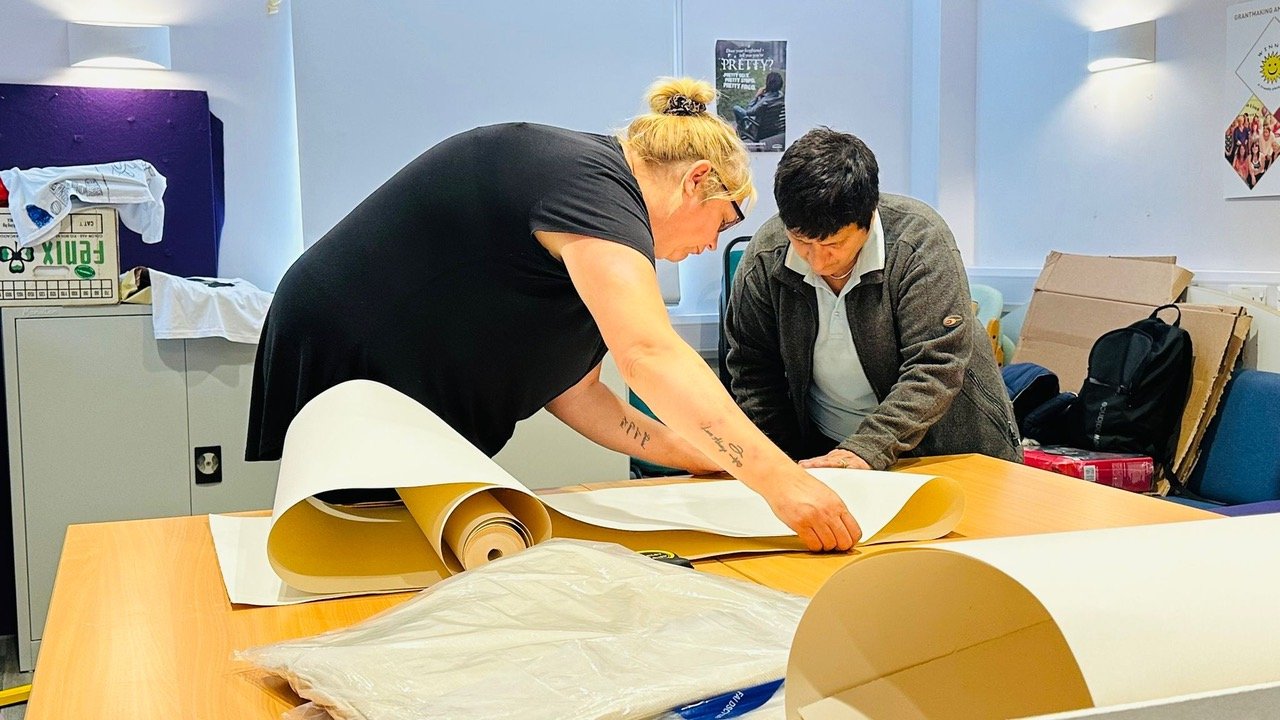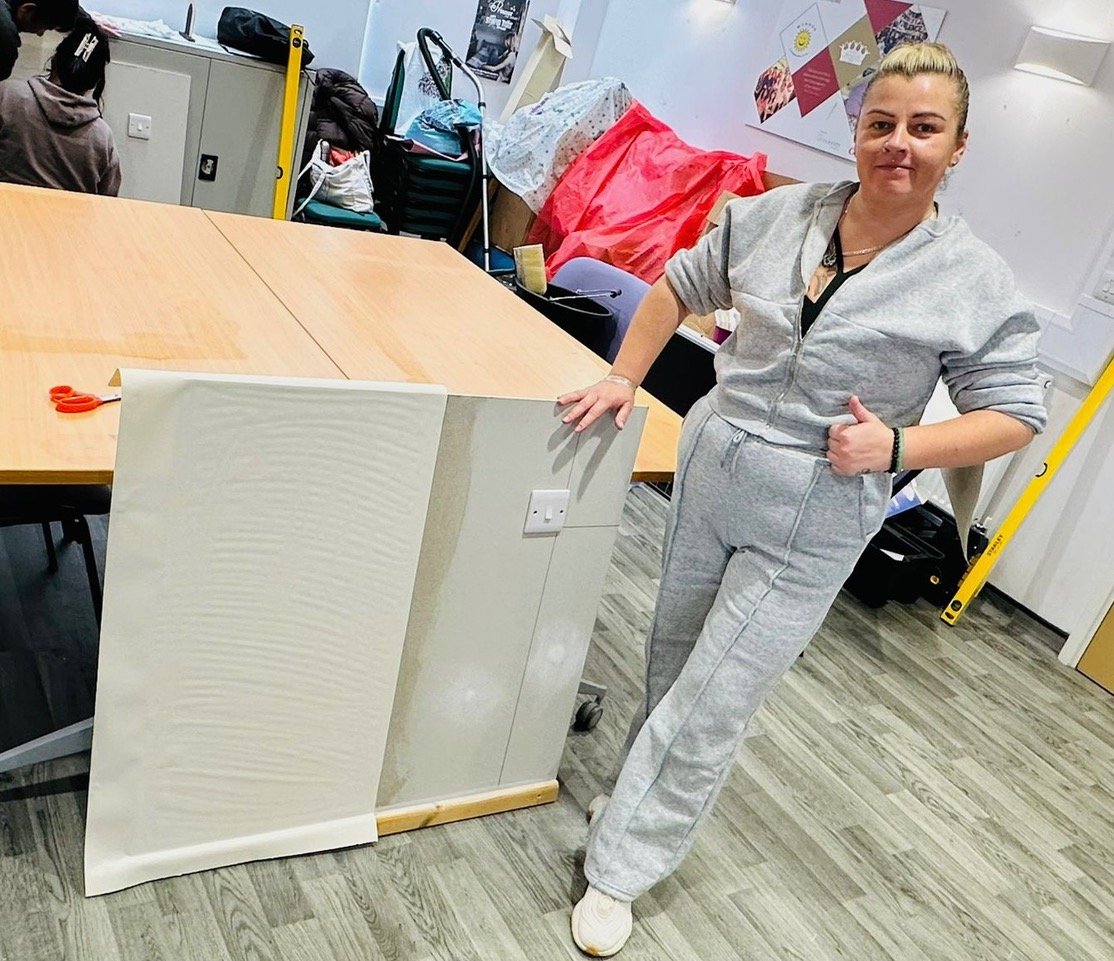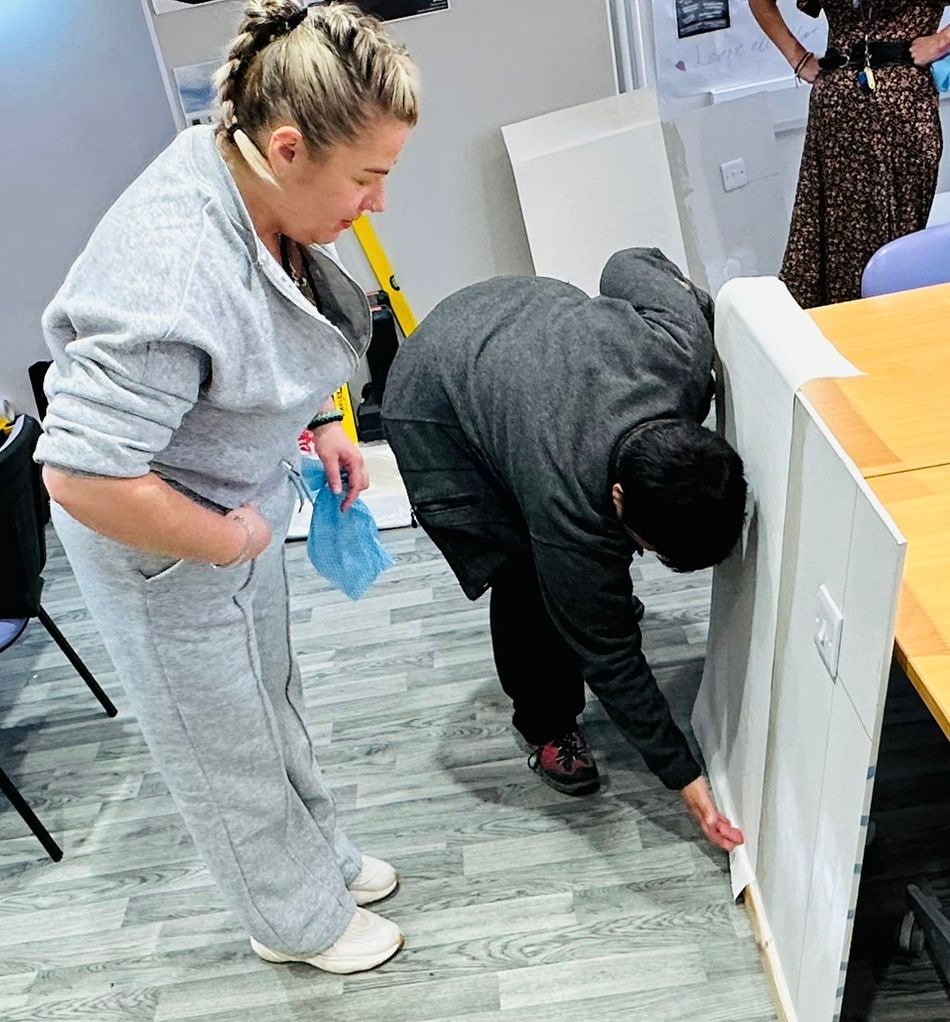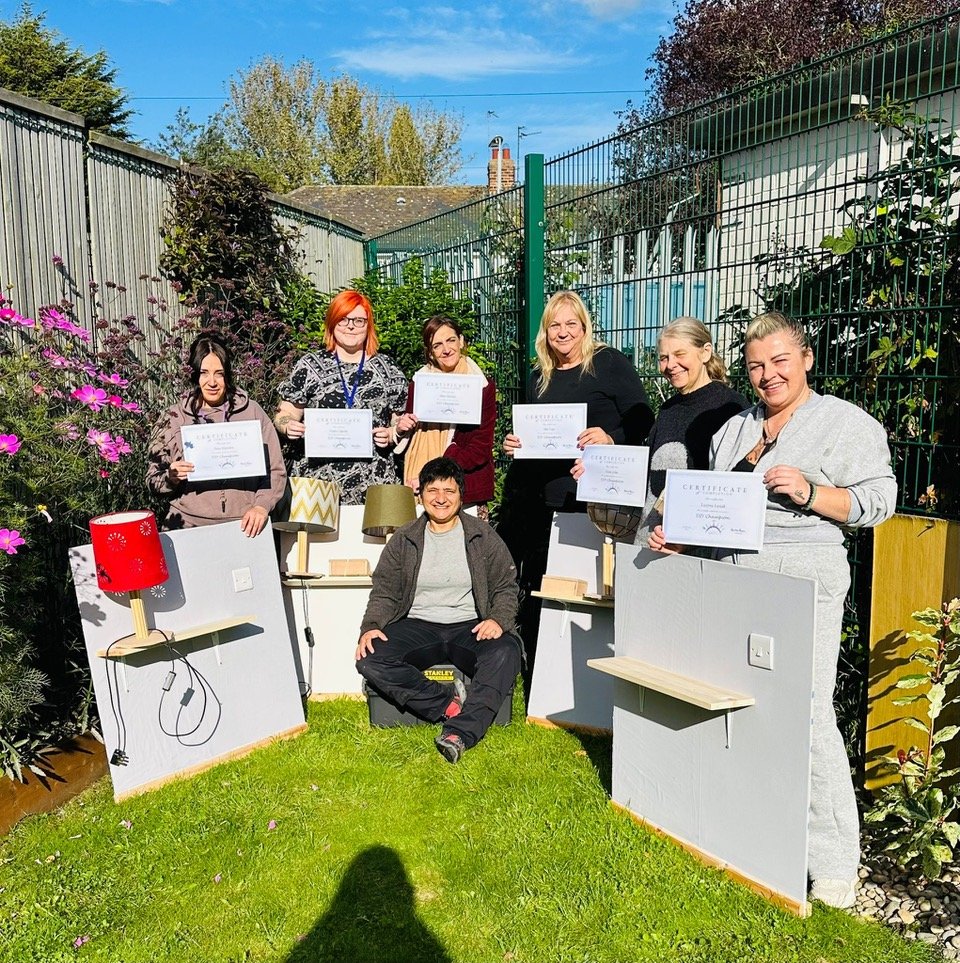Why this matters
You can enable the creation of safe spaces for women to train in DIY, and should they choose to go on to more, in skilled trades or construction.
Together, we can support women to create safer lives for themselves and their children.
Together we can make our industry more representative and inclusive.
Why it’s important to us
When we first talked about the idea of a Register of Tradeswomen with our family, friends and women customers it was so well received that our founder, Hattie Hasan MBE, decided it was time to open up about her own past and experiences of abuse.
She wanted people to know that domestic abuse is not a rare thing and although it’s a subject people don’t want to talk about, it cannot be brushed under the carpet any longer. So she spoke to her mum who gave permission to share the family’s experiences.
Because we talk to hundreds of skilled tradeswomen we realised that many of us have past experiences of abuse. Rather than allowing it to break us, many, many survivors demonstrate resilience and creativity by forging powerful lives.
We have discovered, that, like Hattie, many survivors of abuse fix themselves by fixing things becoming role models and supporting other women through using their skills.
We recognise the resilience and creativity of women and survivors making this into a path to a safer future in this way and are determined to celebrate and support that by creating routes and a community that will make this journey simpler and one we can take with alongside others like ourselves.
What women gain from our courses
- Using tools safely
- fixing sinks
- rewiring plugs
- basic carpentry
- materials and measurement basics
- health and safety
With us, women learn new skills they never dreamed they could have.
The coursers give them skills, but much more importantly, they inspire women to dream about a great future.
As they step towards those brand new futures, some of them become able to imagine a future in skilled trades.
Help us create ways for them to make those dreams a reality.



Women on our courses learn in small, non-judgemental groups.
Taught by women not very different from themselves, they realise that they can learn and that they are worthy of learning.
Tackling something they have never yried before means they are tackling something they have never failed at, which increases their learning capacity.
We teach in small supportive groups where women are encouraged to help each other, which increases their confidence.
Gradually, they realise they are part of a supportive community. Women have even helped their friends and relations by doing DIY jobs for them before the courses are over.
They become a community of role models.
As an industry we need a sense of community and collaboration, we need role models.
We need what these women can bring.

Supporters
Thanks to our supporters for making this possible.












